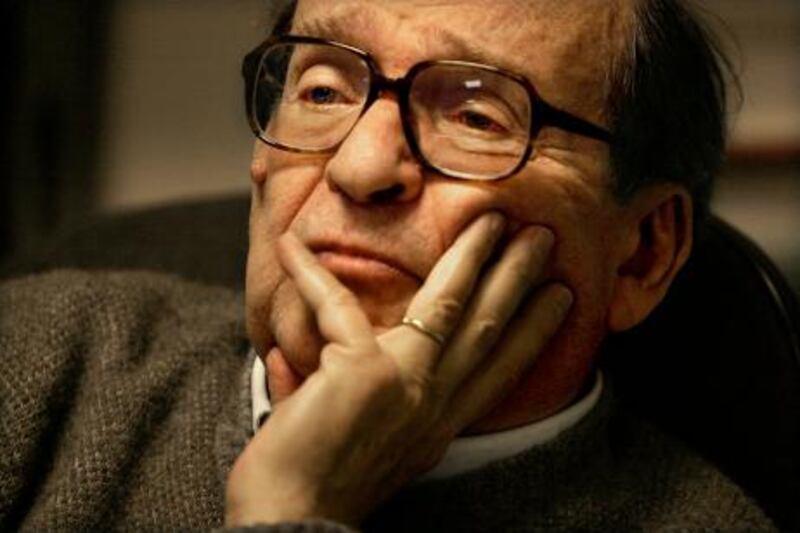Sidney Lumet, who died aged 86 in his native New York on Saturday, was a filmmaker who was fearlessly dedicated to examining social justice and morality with movies that included 12 Angry Men, Dog Day Afternoon and Network.
During a career lasting more than half a century, the "actor's director" also helped inspire some of the finest performances of many of the 20th century's leading lights, including Marlon Brando, Omar Sharif, Richard Burton, Al Pacino and Katharine Hepburn.
"Sensitivity to actors and to the rhythms of the city have made him America's longest-lived descendant of the 1950s neorealist tradition and its urgent commitment to ethical responsibility," claimed the film historians Gerald Mast and Bruce Kawin.
As well as his famed attachment to New York City, the setting of many of his movies, Lumet was known for being one of the most prolific filmmakers of his era, directing at least one movie a year on average.
He once said: "If I don't have a script I adore, I do one I like. If I don't have one I like, I do one that has an actor I like or that presents some technical challenge."
Beginning his showbiz career as a stage actor, before moving into off-Broadway theatre directing, television then finally film, around half of Lumet's movies originated on the stage, including 1959's The Fugitive Kind, 1977's Equus and 1982's Deathtrap.
Although Lumet never won an individual Academy Award, he did receive an honorary prize in 2005 and 14 of his films were nominated for various Oscars. The 1977 drama Network, about the producers of a struggling TV news programme who resort to ethically questionable behaviour to boost ratings, received 10 nods and won four.
Born in Philadelphia, Lumet's parents were both veterans of the Yiddish stage, his father an actor, director, producer and writer, while his mother was a dancer. The outbreak of the Second World War interrupted his career as a Broadway actor, which he had begun as a child. During his four-year service he worked as a radar repair man in Burma and India.
His feature film debut, 1957's courtroom drama 12 Angry Men, is considered by many to be his finest work. Starring Henry Fonda, it tells the story of a jury as they deliberate the guilt or innocence of a defendant on the basis of reasonable doubt.
Bringing some of his expertise from the theatre to movie directing, Lumet was keen to rehearse with his actors at great length before filming and would typically shoot only one or two takes of each scene.
He also emphasised a belief that movie-making should be a collaborative exercise and was renowned "for his flexibility in the sharing of creative ideas with the writer, actor, and other artists," according to the film historian Frank P Cunningham. Lumet was also keen to work with method actors, such as Brando and Pacino, who were able to improvise and deliver genuine performances.
Not unlike Fonda's character in 12 Angry Men - an independent thinker who begins the story as a lone voice speaking out against shortsightedness and injustice - Pacino's Frank Serpico (from the 1973 film Serpico) was also a quintessential Lumet hero. The film is based on the true story of an honest New York policeman who blew the whistle on rampant corruption in the force, only to face reprisals from his fellow officers.
While matters of ethics and justice dominated his films, Lumet was not beyond making the occasional folly. The Wiz, a 1978 musical backed by Motown Productions, was a misguided attempt at retelling the story of The Wizard of Oz in a fantasy version of New York. The cast included Diana Ross as Dorothy, Richard Pryor as the Wizard and Michael Jackson as the Scarecrow.
Although his film output began to slow in the early 1990s, Lumet continued directing until 2007 when his final movie, Before the Devil Knows You're Dead, was released. Telling the story of two brothers who organise the robbery of their parents' jewellery store, it stars Philip Seymour Hoffman, Ethan Hawke and Albert Finney and received rave reviews.
Lumet, who married four times, died of lymphoma on April 9. Following his death, tributes poured in not just from Hollywood colleagues but others, including the musician Quincy Jones and even the New York mayor, Michael Bloomberg. Another fellow New Yorker, Woody Allen, said: "Knowing Sidney, he will have more energy dead than most live people."
Follow us on Twitter and keep up to date with the latest in arts and lifestyle news at twitter.com/LifeNationalUAE





